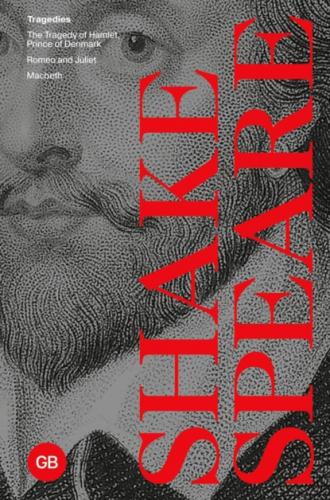Thy knotted and combined locks to part,
And each particular hair to stand on end
Like quills upon the fretful porcupine.
But this eternal blazon must not be
To ears of flesh and blood. List, list, O, list!
If thou didst ever thy dear father love-
HAMLET.
O God!
GHOST.
Revenge his foul and most unnatural murder.
HAMLET.
Murder!
GHOST.
Murder most foul, as in the best it is;
But this most foul, strange, and unnatural.
HAMLET.
Haste me to know’t, that I, with wings as swift
As meditation or the thoughts of love
May sweep to my revenge.
GHOST.
I find thee apt;
And duller shouldst thou be than the fat weed
That rots itself in ease on Lethe wharf,
Wouldst thou not stir in this. Now, Hamlet, hear.
’Tis given out that, sleeping in my orchard,
A serpent stung me; so the whole ear of Denmark
Is by a forged process of my death
Rankly abus’d; but know, thou noble youth,
The serpent that did sting thy father’s life
Now wears his crown.
HAMLET.
O my prophetic soul!
Mine uncle!
GHOST.
Ay, that incestuous, that adulterate beast,
With witchcraft of his wit, with traitorous gifts,-
O wicked wit, and gifts, that have the power
So to seduce! – won to his shameful lust
The will of my most seeming-virtuous queen.
O Hamlet, what a falling off was there,
From me, whose love was of that dignity
That it went hand in hand even with the vow
I made to her in marriage; and to decline
Upon a wretch whose natural gifts were poor
To those of mine. But virtue, as it never will be mov’d,
Though lewdness court it in a shape of heaven;
So lust, though to a radiant angel link’d,
Will sate itself in a celestial bed
And prey on garbage.
But soft! methinks I scent the morning air;
Brief let me be. Sleeping within my orchard,
My custom always of the afternoon,
Upon my secure hour thy uncle stole
With juice of cursed hebenon in a vial,
And in the porches of my ears did pour
The leperous distilment, whose effect
Holds such an enmity with blood of man
That swift as quicksilver it courses through
The natural gates and alleys of the body;
And with a sudden vigour it doth posset
And curd, like eager droppings into milk,
The thin and wholesome blood. So did it mine;
And a most instant tetter bark’d about,
Most lazar-like, with vile and loathsome crust
All my smooth body.
Thus was I, sleeping, by a brother’s hand,
Of life, of crown, of queen at once dispatch’d:
Cut off even in the blossoms of my sin,
Unhous’led, disappointed, unanel’d;
No reckoning made, but sent to my account
With all my imperfections on my head.
O horrible! O horrible! most horrible!
If thou hast nature in thee, bear it not;
Let not the royal bed of Denmark be
A couch for luxury and damned incest.
But howsoever thou pursu’st this act,
Taint not thy mind, nor let thy soul contrive
Against thy mother aught; leave her to heaven,
And to those thorns that in her bosom lodge,
To prick and sting her. Fare thee well at once!
The glow-worm shows the matin to be near,
And ’gins to pale his uneffectual fire.
Adieu, adieu, adieu. Hamlet, remember me.
[Exit.]
HAMLET.
O all you host of heaven! O earth! What else?
And shall I couple hell? O, fie! Hold, my heart;
And you, my sinews, grow not instant old,
But bear me stiffly up. Remember thee?
Ay, thou poor ghost, while memory holds a seat
In this distracted globe. Remember thee?
Yea, from the table of my memory
I’ll wipe away all trivial fond records,
All saws of books, all forms, all pressures past,
That youth and observation copied there;
And thy commandment all alone shall live
Within the book and volume of my brain,
Unmix’d with baser matter. Yes, by heaven!
O most pernicious woman!
O villain, villain, smiling damned villain!
My tables. Meet it is I set it down,
That one may smile, and smile, and be a villain!
At least I am sure it may be so in Denmark.
[Writing.]
So, uncle, there you are. Now to my word;
It is ‘Adieu, adieu, remember me.’
I have sworn’t.
HORATIO and MARCELLUS.
[Within.] My lord, my lord.
MARCELLUS.
[Within.] Lord Hamlet.
HORATIO.
[Within.] Heaven secure him.
HAMLET.
So be it!
MARCELLUS.
[Within.] Illo, ho, ho, my lord!
HAMLET.
Hillo, ho, ho, boy! Come, bird, come.
Enter Horatio and Marcellus.
MARCELLUS.
How is’t, my noble lord?
HORATIO.
What
